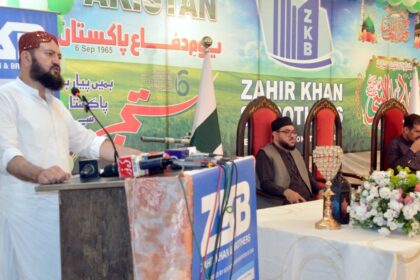SCO Secretary General Nurlan Yermekbayev attended the 3rd Minsk International Conference on Eurasian Security in the Republic of Belarus, an event opened by President Alexander Lukashenko. The conference brought together over 500 delegates from 48 countries to discuss regional stability and cooperation.
Addressing the plenary session, the Secretary General warned that profound historical changes are creating both opportunities for national development and growing risks to the established system of international security. He highlighted how geopolitical and geo-economic confrontation, the arms race and international terrorism are intensifying, with rising levels of mutual distrust and a worsening of existing conflicts alongside new crises.
The SCO continues to advocate respect for the right of nations to make democratic choices on their political and socio-economic paths while rejecting confrontational approaches to international and regional issues. Emphasising the need for dialogue and cooperation, Yermekbayev underlined the organisation’s commitment to strengthening Eurasian Security through partnership rather than division.
Turning to recent diplomatic work, the Secretary General outlined productive outcomes from the SCO summit held on 1 September in Tianjin. He highlighted a joint proposal by Belarus and Russia to develop a Eurasian Charter of Diversity and Multipolarity in the 21st Century, a concept currently under consideration by member states and intended to bolster coordinated regional approaches.
Yermekbayev also cited the Astana Declaration of SCO Leaders (2024), noting that the organisation forms part of an emerging network of partnerships across Eurasia, including the CIS, ASEAN and the Conference on Interaction and Confidence-Building Measures in Asia. He said this network can serve as a strong pillar in shaping a multipolar world order, an agenda with clear implications for neighbouring countries and partners seeking stable regional ties.
The conference programme featured foreign ministers from Belarus, Hungary, the Democratic People’s Republic of Korea, Myanmar and Russia, deputy foreign ministers from Iran, India and Tajikistan, as well as heads of executive bodies of the CIS, CICA and CSTO and representatives of leading research and academic centres. Discussions spanned security cooperation, confidence-building measures and pathways to reduce tensions.
During his visit to Belarus, the Secretary General also toured the Great Stone Industry Park to gain insight into its operations and potential for industrial cooperation. Observers say such visits underscore the SCO’s practical interest in linking security dialogue with economic and industrial initiatives that can support long-term regional stability.
As the discussions in Minsk made clear, the SCO is positioning itself to address contemporary challenges through enhanced cooperation and the promotion of multipolar frameworks, keeping Eurasian Security at the centre of its diplomatic agenda.











